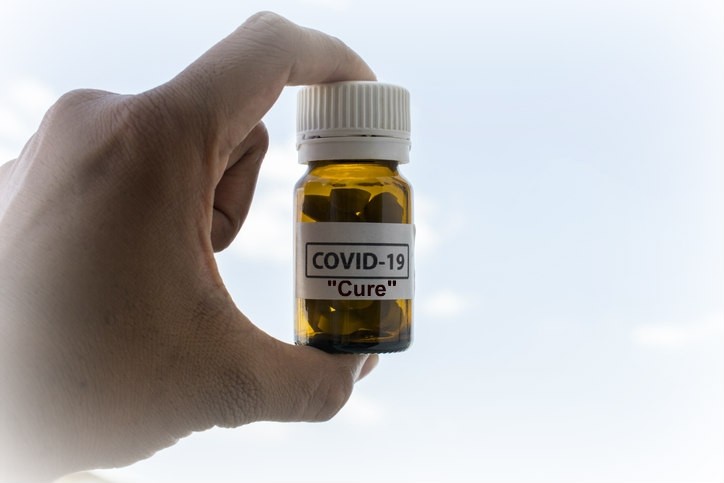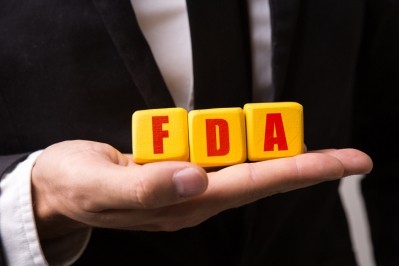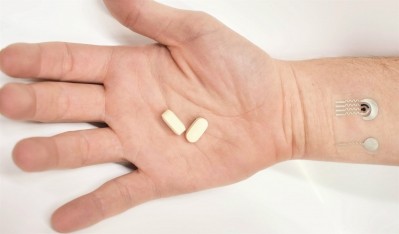Despite coronavirus dislocations, FDA, FTC not taking foot off compliance pedal

FDA Commissioner, Stephen Hahn, MD, said even if they’re not being inspected, manufacturers should continue to follow cGMPs. “Inspections are just one part of a robust and multi-pronged approach to overseeing the safety and quality of FDA-regulated products; however, inspections are not what cause quality to happen. Safety and quality need to be owned by the industry, and firms have the primary responsibility to reliably produce quality products.”
Joe Simons, chairman of the Federal Trade Commission, said that despite difficult circumstances, staff in the Bureau of Consumer Protection would remain at work and that good faith efforts will be taken into account in making enforcement decisions.
“We are working closely with federal and state law enforcers, and with other stakeholders, including consumer advocates and the business community, and are devoting significant resources to tackling scammers and unfair and deceptive business practices. We will not tolerate businesses seeking to take advantage of consumers’ concerns and fears regarding coronavirus disease, exigent circumstances, or financial distress.”
With a greater responsibility of safety assurance on the manufacturers, Simons added that the FTC is available to assist businesses that seek guidance about compliance obligations on consumer protection issues.
Warning letters batch #4
The Federal Trade Commission recently announced it has sent 37 additional letters warning dietary supplement marketers to stop making unsubstantiated claims that their products can treat or prevent COVID-19. This is the fourth batch of warning letters the FTC has sent out. In all, the Commission has sent similar letters to almost 100 companies and individuals.
The FTC previously sent warning letters to a variety of marketers selling vitamins, herbs, colloidal silver, teas, essential oils, and other products pitched as scientifically proven coronavirus treatments or preventatives.
And it's not just health claims. The demand of immune support ingredients has challenged the supply chain and scammers are pouncing on the opportunity. It was recently brought to the attention of Alkemist Labs that some ingredient suppliers and marketing companies have been altering valid lab reports and using those falsified reports to promote their products.
The agency said scammers are relying on an old trick from their bag: “Scammers follow headlines, and what’s in the headline right now is COVID-19 all the time and scammers are following that,” said Monica Vaca, associate director for the FTC’s division of consumer response and operations.
In the latest series, FTC fired off warning letters to the following individuals and companies hawking supplements, drugs, vitamin C therapy and Chinese herbal treatments they claim would treat or prevent coronavirus:
- A Center for Natural Healing (Santa Clara, California)
- ActiveHerb Technology, Inc. (San Diego, California)
- Barry Cohen (Port St. Lucie, Florida)
- Bee & You (New York, New York)
- Center for Occupational & Environmental Medicine (N. Charleston, South Carolina)
- Core Acupuncture (Philadelphia, Pennsylvania)
- EHE Clinic & Wellness (Blacksburg, Virginia)
- Essentia Chinese Herbs (Scottsdale, Arizona)
- Golden Road Kratom (Huntington Beach, California)
- Golden Sunrise Pharmaceutical (Portersville, California)
- Holistic Health Acupuncture (Medford, Oregon)
- Holtorf Medical Group (El Segundo, California)
- Infuze MD (Pleasant Hill, California)
- Inner Works Acupuncture (Portland, Oregon)
- Integrative Acupuncture (Montpelier, Vermont)
- Legion Athletics, Inc. (McLean, Virginia)
- Natural Herbal Life, Inc. (Manhattan Beach, California)
- Naturments (Lauderdale Lakes, Florida)
- New Leaf Wellness, LLC (West Des Moines, Iowa)
- NothingsIncurable (online only)
- Pacific Acupuncture (Manhattan Beach, California)
- Portland Clinic of Holistic Health (Portland, Oregon)
- Proactive Health (Tustin, California)
- Remedys Nutrition (Miami Lakes, Florida)
- Sheldon Jay Dobbs (Martinsville, Indiana)
- Aspire Regenerative Health (San Diego, California)
- Cypress Natural Medicine (Palo Alto, California)
- DetoxVIP (West Palm Beach, Florida)
- Envista Medical Neck & Back Center (Bakersfield, California)
- Holistique Naturopathic Medical Center (Bellevue, Washington)
- McDonagh Medical Center (Gladstone, Missouri)
- Onus IV (Denver, Colorado)
- Revive & Rally Health Lounge (Kansas City, Missouri)
- Riordan Clinic (Wichita, Kansas)
- The Epigenetics Healing Center, LLC (Overland Park, Kansas)
- The LaCava Center (St. Charles, Illinois)
- Whole Health Chicago (Chicago, Illinois)
Cut it out or pay up
In the letters, the FTC outlines that one or more of the efficacy claims made by the marketers are unsubstantiated because they are not supported by scientific evidence, and therefore violate the FTC Act. The letters advise the recipients to immediately stop making all claims that their products can treat or cure COVID-19, and to notify the Commission within 48 hours about the specific actions they have taken to address the agency’s concerns.
Additionally, the letters warn that if these false claims do not stop, the Commission may seek a federal court injunction and an order that requires money to be refunded to consumers. The FTC recently announced its first case against a marketer of such products, Marc Ching, who does business as Whole Leaf Organics.
“Let’s be clear: companies making these claims can look forward to an FTC lawsuit like this one,” cautioned Bureau of Consumer Protection Director Andrew Smith.









